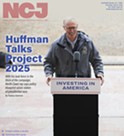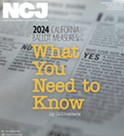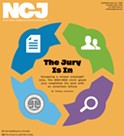[
{
"name": "Top Stories Video Pair",
"insertPoint": "7",
"component": "17087298",
"parentWrapperClass": "fdn-ads-inline-content-block",
"requiredCountToDisplay": "1"
}
]
Parallel crises that are tightening their grips on the United States year by year, and day by day, collided on July 13 in Butler, Pennsylvania, when a would-be assassin opened fire on former President Donald Trump at a campaign rally.
Fortunately, Trump escaped the shooting largely unscathed, save for a wound to his right ear, but three of his rally goers — Corey Comperatore, a 50-year-old volunteer fire chief who was killed while reportedly trying to shield his family, and two other men who were in critical condition after being shot — were not so fortunate.
And the crises of toxic political rhetoric and gun violence remain.
While the shooting was shocking, it perhaps should not have been surprising. While news coverage, politicians' statements and popular sentiment might have you believe political violence is rare in the United States, we don't need to look far to find scores of examples. There was the 2011 shooting of Congressmember Gabby Giffords, the 2017 mass shooting at a practice for the Congressional Baseball Game, the foiled kidnapping of then Michigan Gov. Gretchen Whitmer in 2020, the Jan. 6, 2021 riot at the U.S. Capitol and the attempted kidnapping of then House Speaker Nancy Pelosi and assault on her husband in 2022. And those are just the ones involving national figures that played out in the national press.
It seems unlikely coincidental that roughly over the same time period, our national politics have steadily devolved into one of grievance, vitriol and hyperbole, with politicians seemingly ever more willing to attack one another's character and intentions rather than their policies, more likely to use the language of war than the language of compromise and compassion. It seems forgotten these days that in politics we don't have enemies, just fellow citizens with whom we may disagree.
All the more alarming is that this crisis isn't playing out in a vacuum. Since 2010, gun deaths in the United States have spiked sharply, reaching an unprecedented 47,000-plus in 2021. Our gun death rates — which are now rivaling their peaks in the 1970s — dwarf those of most other developed nations.
These trends are alarming, and all the more so when you add in the rise in disinformation and declining faith in our institutions, both of which were painfully on full display after the attempted assassination of Trump. Within hours, social media was awash in meritless conspiracy theories from all political spectrums, with simultaneous bloviations that the shooting was state sanctioned or staged for political advantage.
So what do we do in this political and social landscape that seems to grow more frightening by the day, with tensions poised to mount exponentially as we barrel toward an election less than four months away? The question seems paralyzingly large, but we see some low-hanging fruit.
First, the gun owners among us can make sure our weapons are secure, taking advantage of trigger locks and lockboxes to ensure they don't wind up in the wrong hands, whether those of a loved one in crisis or a burglar.
Second, we can think critically about the information we're fed and approach political conversations (and choices) from a place of reason rather than emotion. We can look to bridge divides rather than exploit them, strive to model decency rather than depravity, listen rather than yell. And we can support politicians who do the same.
And perhaps most importantly, we can put our devices down, turn off the cable news and talk radio pundits, and simply engage with one another. Our national politics have turned toxic but our lives and mental health do not need to follow suit. Help an elder in your neighborhood, check on your loved ones, volunteer for one of our many nonprofits doing good work locally or spend some time out in the beauty of the natural world that surrounds us (maybe taking a trash bag with you to leave the place a bit better than you found it).
There's no getting around the fact that these are scary times and the future is uncertain. What is certain is that we're in this together, as a Humboldt community and as a nation. And the more we keep that in mind, the better off we'll be.
Thadeus Greenson (he/him) is the Journal's news editor. Reach him at (707) 442-1400, extension 321, or [email protected].
more from the author
-
Humboldt Lines Up for Free Care
With massive volunteer effort, two-day clinic treats hundreds
- Jul 18, 2024
-
Huffman Talks Project 2025
With his task force in the thick of the campaign, North Coast rep says policy blueprint raises stakes of presidential race
- Jul 18, 2024
-
Jackson Stepping Down at Cal Poly Humboldt
- Jul 11, 2024
- More »
Latest in Editorial
Readers also liked…
-
Failed Leadership
- May 2, 2024































